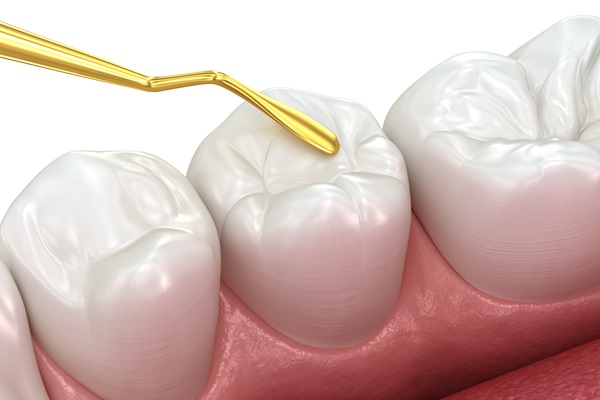7 Rules to Make Your Dental Check-Up Easier

The purpose of a dental check-up goes further than merely getting your teeth cleaned. It is also an opportunity for a dentist to evaluate the patient's mouth and come up with a treatment plan for any issues that may not be known by the patient. Regular visits to the dentist's clinic are an integral part of preventative dental care.
Making check-ups easier
Here are seven simple things that can be done to make a patient's visit to the dentist a lot easier:
1. Make a list of concerns and questions before the dental check-up
Patients often have a hard time remembering all the questions they have during dental visits, so it is best to write them down before appointments. Patients should talk to their dentists about any issues they are experiencing like bleeding gums, tooth pain or sensitivity, sores inside the mouth, habits like teeth grinding, or difficulty brushing and flossing due to a damaged tooth.
2. Provide updates to medical history
Patients should also provide any updates to their medical history during dental check-ups. Many health issues can affect a person's oral health like diabetes, and dentists are better equipped to treat their patients when they are fully aware of the health conditions the person is dealing with. The more informed the dentist is, the more likely they will be to recommend the right treatments.
3. Provide lists of medications, supplements, and vitamins being taken
Certain medications have side effects like dry mouth, increased blood pressure, or depression which can increase the risk of gum disease and tooth decay. Other medications have a thinning effect on the patient's blood, and that can lead to increased bleeding after dental treatments are performed. When a dentist is aware of the medications a patient takes, proper steps can be made to ensure its side effects does not lead to complications during treatments.
4. Consider low-cost alternatives
This option is particularly important for those working with a budget. Finances being tight can lead to dental anxiety since the patient finds that they continuously are worried about being able to afford the necessary treatments. When working with a budget, it is best to communicate that directly with the dentist so that cheaper treatments can be explored.
5. Ask for oral hygiene tips
Dentistry is always changing, and some things that were once recommended by dentists are now considered unhealthy. Patients should talk to their dentist about the proper way to take care of their teeth and gums. Part of a dentist's job is to educate patients about their oral health so take advantage of this.
6. Arrive early
Showing up for dental appointments on time gives the patient an opportunity to relax and calm down before treatments. That leads to a more pleasant experience since the person does not feel rushed. Patients should make it a habit of arriving at least five minutes before dental appointments.
7. Consider sedation dentistry
Those who have a hard time staying relaxed at the dentist's clinic should consider sedation dentistry. This choice involves the use of sedatives to keep patients relaxed during appointments.
Let us help find the right option for you
Ready for your next check-up? Schedule an appointment with one of our dentists today!
Request a dental appointment here: https://clarisseatakhaniandds.com or call Clarisse Atakhanian DDS Inc. at (818) 483-9071 for an appointment in our Glendale dental office.
Recent Posts
At your Glendale dentist, we know that the secret to great teeth is consistency and regular visits to the dentist for an examination and cleaning. While we understand that visiting the dentist is probably not the first thing on your “fun things to schedule today” list, we also know there are intrinsic benefits to seeing…
Preventive dentistry involves using the right products. This includes selecting the right toothpaste. There is a type of toothpaste for every person. If you want to enhance your preventive dentistry brushing strategy, here are some tips on choosing the right toothpaste.The attending dentist will be the judge of the most suitable toothpaste. The dentist knows…
Many people know that preventative dentistry can help protect their teeth from things like plaque and decay. However, they may not know that their bad habits cause damage to their teeth. You might not feel pain when doing something as small as biting your fingernails, but it can lead to severe dental problems. With some…
Cavity prevention is an important part of keeping your teeth healthy. Tooth decay is one of the most common issues dentists deal with each day. Decay leads to serious dental problems if you do not treat it. Fortunately, preventing cavities does not cost much. You only need a willingness to make your oral health a…


